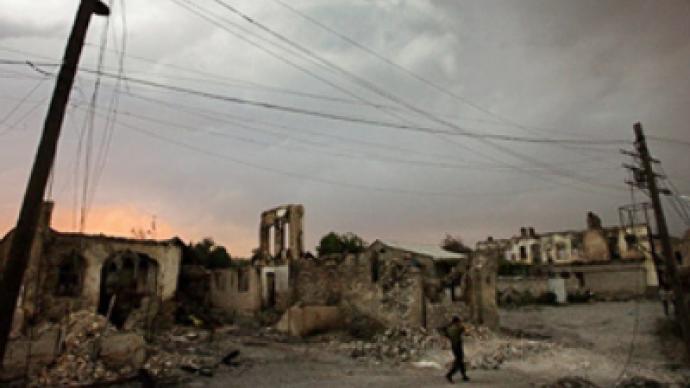Conflict gives way to rebuilding

Humanitarian and diplomatic efforts were stepped up this week after the five-day conflict between Georgia and South Ossetia. Officials in the breakaway republic report that more than 100 bodies have been identified so far.
From Monday Russian peacekeeping units started to withdraw from Georgian region and said they had fully pulled back to their previous positions by Friday evening.
After an operation aimed at restoring peace in the region, the Russian military remained in the conflict zone to prevent an escalation of violence.
Reconstruction is now taking place in the devastated areas of South Ossetia. Around 700 houses were destroyed in Tskhinvali alone, with many others seriously damaged.
It was not only South Ossetians who have suffered as a result of Georgia's attack on Tskhinvali. An entire Jewish neighbourhood has been wiped out as well.
The water supply and electricity have been restored in Tskhinvali and some 400,000 tonnes of humanitarian aid are being delivered to the capital daily.
As a result, of the 37,000 that fled the region when the clashes began, more than 18,000 people have now returned to their homes.
The Russian Federal Migration Service said around 4,000 are still in Russia. They've been registered and accommodated in the southern part of the country.
Earlier this week, the South Ossetian President, Eduard Kokoity, promised safety for ethnic Georgians who want to return to the area.
The main base for refugees, Vladikavkaz in North Ossetia, is continuing to receive humanitarian aid for thousands that fled Georgian shelling.
Russia is the main aid contributor to the region. Other CIS countries have also sent a large amount of humanitarian relief to the region.
Human Rights Commissioner speaks out
The Council of Europe's Human Rights Commissioner Thomas Hammarberg is in the city of Tskhinvali to assess the damage of Georgian shelling.
He and his Russian counterpart Vladimir Lukin are on a mission to document what happened to the civilian population during the Georgian-South Ossetian conflict.
The commisioner walked around the ruins of the capital talking to local residents to get a full account what happened to the local population.
Residents asked him where the international organisations were when Georgia started the shelling.
He described what he saw in the destroyed area as a result of 'war madness'.
Spiritual healing
On Friday a concert was held for those who suffered and survived the shelling in Tskhinvali.
Seventy musicians headed by Valeriy Gergiev – a renowned conductor, himself of Ossetian origin, – gave a concert to pay tribute to the victims of the war.
“I came today with the world-famous Marrinsky Orchestra to Tskhinvali to see with my own eyes the horrible destruction of this city. I also came here to perform and honour the dead. It was a huge act of aggression on part of the Georgian army. This is not yet a known story to the world, but I'm sure the truth will come out. We know how the people suffered, let’s not allow this to happen ever again,” Gergiev said in his opening speech.
On the steps of the battle-scarred Ossetian parliament, the performance by the Mariinsky orchestra brought long-awaited relief, with candles burning on every step behind the orchestra to remember those killed in the conflict.
For the performance Gergiev chose as one of the themes “Invasion” from Shostakovich’s 7th symphony, which was dedicated to the siege of Leningrad.












